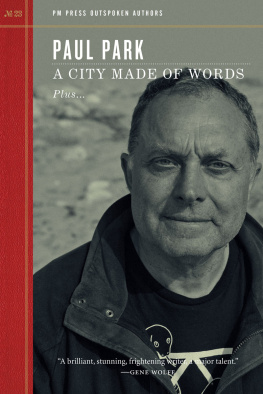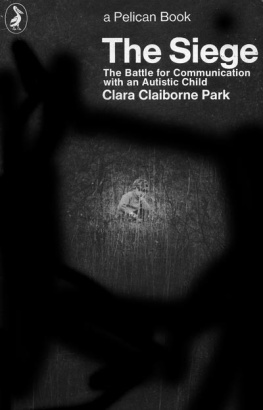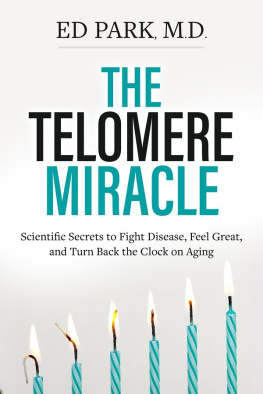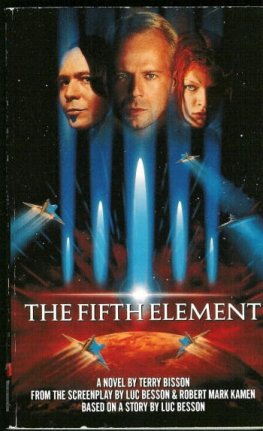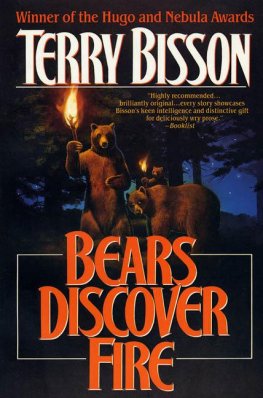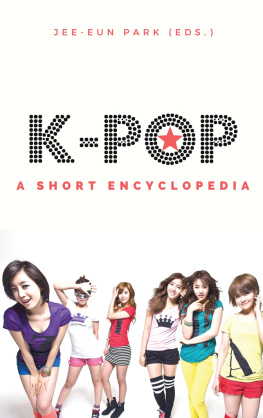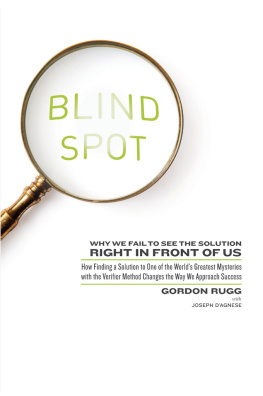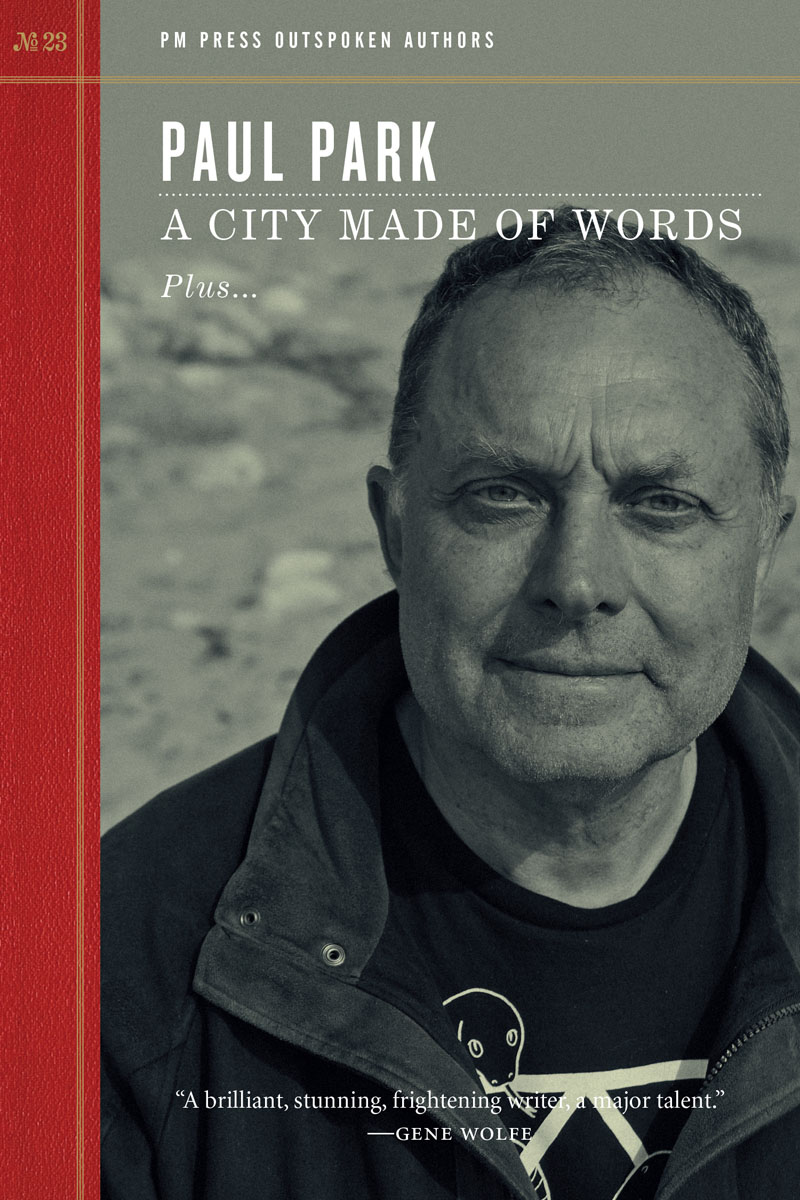
Paul Park
Shortlisted for the
Nebula Award
World Fantasy Award
Arthur C. Clarke Award
Tiptree Award
Sidewise Award for Alternate History
Theodore Sturgeon Award
Paul Park is one of the most gifted and subtle story writers I know.
Jonathan Lethem
Entering a Paul Park universe means slipping into an eerily compelling plane where nearly palpable visions transform as disturbing as the images in a sexually charged fever dream.
Publishers Weekly
Paul Parks short stories are blunt, funny, distressing, strange, trueall these qualities, often all at once.
Kim Stanley Robinson
Genre writing is both a liberation and a confinement. If those who dont read science fiction could discover Paul Park, they would find a writer as complex, as skillful, as ambitious, and as many-faceted as any they would find under any rubric.
John Crowley

PM PRESS OUTSPOKEN AUTHORS SERIES
1. The Left Left Behind
Terry Bisson
2. The Lucky Strike
Kim Stanley Robinson
3. The Underbelly
Gary Phillips
4. Mammoths of the Great Plains
Eleanor Arnason
5. Modem Times 2.0
Michael Moorcock
6. The Wild Girls
Ursula K. Le Guin
7. Surfing the Gnarl
Rudy Rucker
8. The Great Big Beautiful
Tomorrow Cory Doctorow
9. Report from Planet
Midnight Nalo Hopkinson
10. The Human Front
Ken MacLeod
11. New Taboos
John Shirley
12. The Science of Herself
Karen Joy Fowler
13. Raising Hell
Norman Spinrad
14. Patty Hearst & The Twinkie Murders: A Tale of Two Trials
Paul Krassner
15. My Life, My Body
Marge Piercy
16. Gypsy
Carter Scholz
17. Miracles Aint What They Used to Be
Joe R. Lansdale
18. Fire.
Elizabeth Hand
19. Totalitopia
John Crowley
20. The Atheist in the Attic
Samuel R. Delany
21. Thoreaus Microscope
Michael Blumlein
22. The Beatrix Gates
Rachel Pollack
23. A City Made of Words
Paul Park
24. Talk like a Man
Nisi Shawl
A Short History of Science Fiction was first published in the collection Other Stories (PS Publishing, 2015).
A Resistance to Theory was first published online at Conjunctions.com, November 2014.
Blind Spot was first published in Other Aliens, Conjunctions 67, Fall 2016.
Creative Nonfiction was first published in Asimovs 42, no. 56, May/June 2018.
A Homily for Good Friday was delivered at St. Johns Episcopal Church in Williamstown, MA.
A Conversation with the Author and Climate Change are original to this volume.
A City Made of Words
Paul Park 2019
This edition PM Press
Series Editor: Terry Bisson
ISBN: 978-1-62963-642-9
LCCN: 2018949075
Cover design by John Yates/www.stealworks.com
Author photo by Deborah Brothers
CONTENTS
Punctuality, Basic Hygiene, Gun Safety
Paul Park Interviewed by Terry Bisson
A Short History of Science Fiction, or The Microscopic Eye
This course was taken with John Palmer, and the true secret of his mysterious power of vision detected in an instant. The eye examined was exceedingly flat, very thin, with large iris, flat lens, immense petira, and wonderfully dilated pupil. The effect of the shape was at once apparent. It was utterly impossible to see any object with distinctness at any distance short of many thousands of miles.
W.H. Rhodes, The Telescopic Eye, 1876
H E WAS THERE WHEN I arrived in the morning, there when I left at night: an old man who had staked out as his place of business a square yard of sidewalk next to the revolving door, in which location he sold pencils and matches when he had them. Or if he did not he stood there anyway, marking time as did so many in those days, dressed in a threadbare blue suit and dirty collar, wearing around his neck a neatly lettered placardBlind.
All winter and into spring, in downtown San Francisco I saw him every day outside the bank where I worked. At that time I had taken up the habit of attending more than the usual complement of religious services. Nowadays I dont participate at all. But that year I was a vestryman at an Episcopal chapel, and for Holy Week I was in charge of the Maundy Thursday celebration, during which our rector intended to wash the feet of twelve lucky indigents. Our chapel sponsored a soup kitchen where I could have easily found the requisite number or indeed any number at all, the evening crowd outside the basement was so large. But I was not drawn to these citizens, farmers from Texas and Oklahoma who had come to San Francisco as a last resort, as if the city were a mesh at the bottom of a drain. No matter how poor they were, they could always find money for tobacco and alcohol. Their leathery skins and flat accents were alien to me, and I was concerned, also, by the prospect of awakening any hope at all in them, any expectation of special treatment or potential employment, by their participation in what was after all a useless kind of spectacle.
Instead, I imagined I could explain myself better to the match-seller outside my building, where I worked as a loans officer. His clothes marked him as a city resident, and his voice as he thanked me on some mornings for my nickel or even once my dime seemed to suggest a native of California. A deserving unfortunate, I thought, the kind of person our Lord specifically enjoins us to protect.
You will forgive me if I speak ironically. I was just about at the end of my tether, and I thought his blind eyes would register no disappointment. I did not ask him on Monday or on Tuesday, but on Wednesday evening I stopped in front of him to stammer out my request. The crowds in the streets had diminished, and we stood alone beside the granite front. He raised his face to look at me, a gaunt face commanded by enormous, empty, bulging, malformed eyes. But for a moment I wondered if he was blind at all.
I introduced myself.
John Palmer, he said. He was past sixty, I thought, perhaps closer to three score and ten. Culp Hill, he suggested when I asked where he was from, a neighborhood that, with his name and the calm gaze of his enormous eyes seemed to tear something from my memory.
Sir, I am not a beggar or a vagrant. That makes it hard for me to accurately represent one of the Apostles, if I understand you He continued on like that, his voice gentle and good-natured, but by that time I had stopped listening. His eyes shone like lenses and I peered down into them. Could it be?
I interrupted him. Youre Johnny Palmer, I cried. Youre the boy who saw the men in the moon.
He winced. But I ignored his stricken look as I continued. Youre the boy who saw the cities on Mars. My father saved the clippings. Your picture was in the newspapers.
Laboriously, insincerely, he smiled. Not a boy, sir.
Someone had turned on the lights in the restaurant across the street. The blind man shrugged, opened his palms apologetically. I believed it, I cried. I believed every word. Oceans of quicksilver, colored creatures sliding back and forth across the horizon line. And then Percival Lowell and his Martian canali. We thought he had confirmed your observations.
Next page
